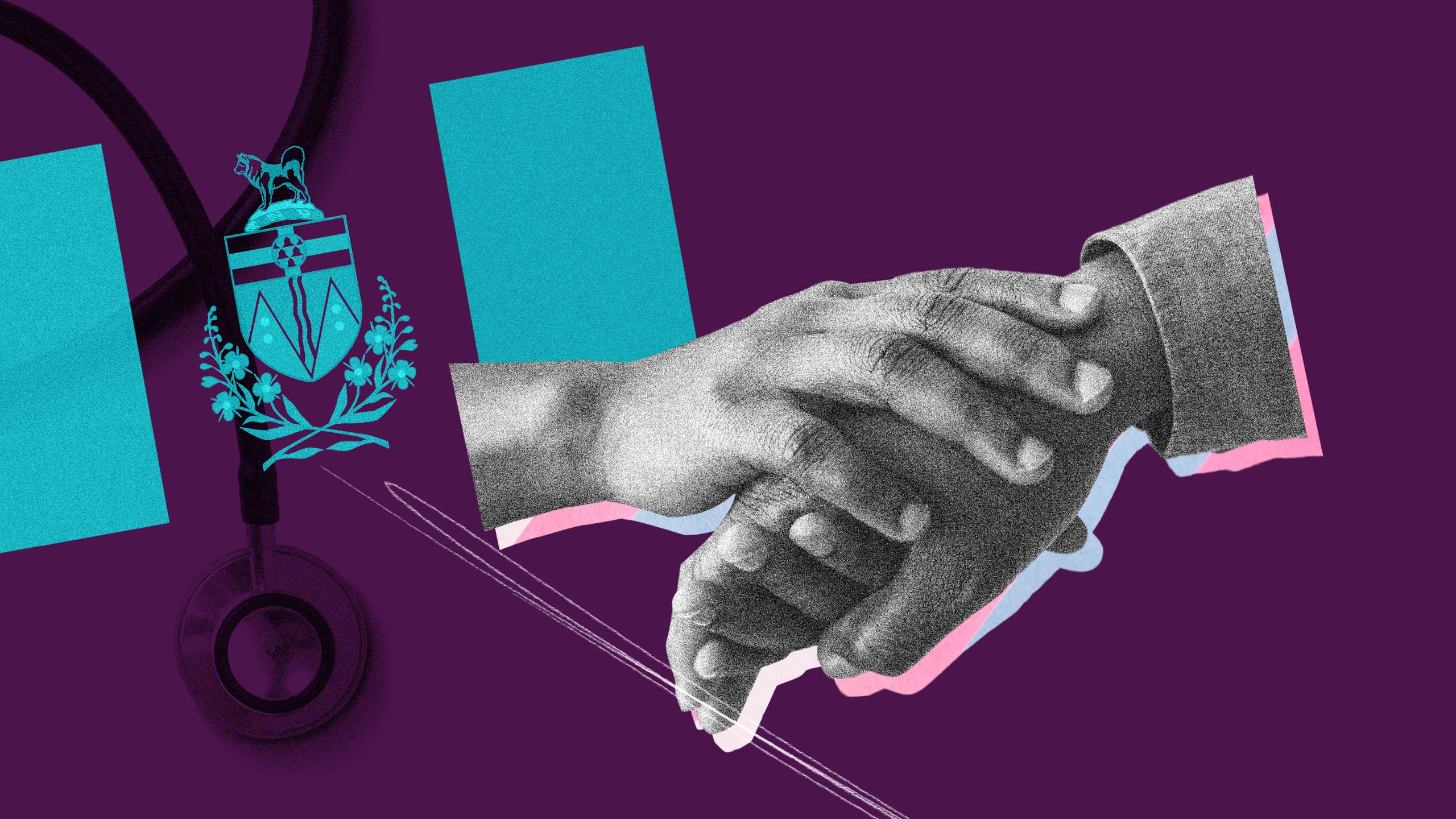A legal snafu has led to what the Yukon government is calling a “pause” in coverage to many gender-affirming care procedures provided by the territory, resulting in cancelled or delayed appointments and leaving some trans and non-binary people uncertain as to when their scheduled or wait-listed procedures will take place.
In March 2021, Yukon made significant changes to its gender-affirming care policies, significantly expanding coverage to include things like facial feminization surgery and voice training. Gender-affirming care coverage varies considerably across Canada, and experts at the time lauded Yukon’s new expanded care as the “most comprehensive” in the country. Recently, however, trans and non-binary community members began reporting cancellations or delays in variety of gender-affirming services, from electrolysis to surgery approval.
“The service disruptions have been a bit staggered. My understanding is that (we were) hearing about surgery approval delays as early as August, but we didn’t realize until late October that what we were seeing was a pause in services rather than bureaucracy being slow,” says Mona Luxion, executive direction of the not-for-profit organization Queer Yukon Society (QYS).
Mira Sirois, the health and education manager with QYS says they first got a “loose warning” about two months ago that “something was up” and that the gender-affirming care policy had come up against “some kind of conflict.”
That conflict, as it turns out, is the result of previously existing legislation, which forbids the Yukon government from paying for services provided by private care clinics and providers—which is where many gender-affirming procedures take place.
According to a letter submitted to QYS on Nov. 4 from Michael Hale, deputy minister of Health and Social Services, “Coverage for some services under the gender-affirming care policy has been paused as the Department of Health and Social Services now understands that regulatory changes are required to continue to provide coverage for all services and procedures outlined in the policy.”
Prescriptions for hormones, as well as surgeries at Vancouver General Hospital, are unaffected, as they are accessed via public providers.
Yukon has limited medical services, and it is common for residents to be sent out of territory—usually Vancouver—for surgeries, or to see specialists, which are part of the B.C. public health system. Yukon’s gender-affirming healthcare piggybacks off Trans Care BC, however, which refers Yukon residents to specialists, usually within the province.
Luxion says the only gender-affirming care services available in Yukon are voice training, HRT and hair removal (excluding hair removal for bottom surgery).
“Right now, the legislation does not authorize (private care),” says Shauna Demers, Yukon’s director of Insured Health Services and Innovation, adding that the department is working on fixing the issue, which requires “opening up” the legislation that prohibits private care coverage, changing it to make it agree with Yukon’s the gender-affirming care program, and having it approved.
Demers says the government has a “set-in-stone” commitment to having the issue resolved by the end of 2022 so that services can “absolutely” resume as intended at the start of 2023.
“As a person who is also on that waiting list who has been impacted, I can say that my own mental health has not been good.”
In the meantime, all gender-affirming care performed in private clinics (other than voice training) will not not be covered by the Yukon government, including ongoing services previously paid for or booked for the future. This has had a profound impact on the local trans and non-binary community, says Sirois, who themself is waiting on bottom surgery from a private clinic in Montreal. Sirois fears that the pause in coverage could ultimately extend their wait time since approval of funding is a requirement to securing a date for gender-affirming surgery with the clinic they’ve been wait-listed for.
“From the feedback I’ve been getting, [the impact] is tremendous. It’s heartbreaking,” they say.
“As a person who is also on that waiting list who has been impacted, I can say that my own health and mental health has not been good. It’s taken a toll. It’s hard.
“I think there has been an overall lack of certainty, which has been one of the most distressing parts for myself—and everyone else involved it seems,” they say. “There are wait-lists at each step, but approval of funding should be amongst the fastest.”
When asked if there was a plan in place to aid people who may have lost or may lose their place on wait-lists as the result of this pause in care funding, Demers says that to her knowledge “that has not occurred,” adding that “we haven’t asked anyone to give up their spot, and we’ll pick things up in January, acknowledging that these wait-lists are long.”
Among some of the greatest concerns for community members, says Sirois, is the lack of communication.
“For the longest time there was just no communication as to what the scope of the issue was, what was impacted,” they note.
Daria Bloodworth says she moved to the Yukon from Alberta, in part because of the comprehensiveness of the territory’s gender-affirming care program. She was accessing electrolysis through the territory’s coverage plan and says she had to find out from her electrologist that her appointments would no longer be free, with no warning whatsoever from the government.
Demers says the government communicated with the two businesses in Whitehorse—that provide gender-affirming hair removal—that coverage had been paused and would be picked up again in January, but that this was not the message the providers communicated to clients.
“The messaging to the clients was that [service] had been cancelled, which is not the message that was communicated to the businesses or that we shared with Queer Yukon when we met with them, or with clients or … their primary care providers,” she says.
Queer and trans folks are angry and feel confused about how this pause could have been allowed to happen in the first place, since the Yukon government promised to expand care nearly two years ago.
“I can’t say whether things were or weren’t thought through,” Demers says. “But the policy was stood up with the absolute intention of supporting the delivery of gender-affirming care for Yukoners, and I believe the minister was operating on the guide that all of this [would] work, and the legal pieces were in place to support this … now we are working as quickly as we can and pick up the policy so people can have access to the care that they need.”
Pauline Frost was minister of the department at the time the policy was developed and approved by Yukon Health and Social Services. Frost lost her seat in the April 2021 territorial election—about a month after the changes came into effect. The current Yukon minister of Health and Social Services is Tracy-Anne McPhee.
Demers says she realizes this hold up has created a lot of “mistrust” between the trans community and the government of Yukon, but they’re “working hard” to fix the issue.
When asked why it took more than a year and a half to discover the issue–which amounts to the prior, established legislation making the execution of the more recent gender-affirming care legislation impossible to enact in most situations where private care is required–the Department of Health and Social Services didn’t give a direct explanation.
“Since announcing changes to improve access to gender-affirming care in 2021, we learned that more work must be done first to ensure we can provide coverage for some gender-affirming procedures,” Claire Robson, a spokesperson for the department told Xtra in response to the question via email, adding that, “This is a very complex matter that jurisdictions across the country are grappling with.”
Despite the difficulties, Demers refers to the pause in services not as a “mistake,” but rather a “gap” and an “oversight.”
Luxion disagrees.
“It’s obviously a huge mistake to make this kind of commitment to provide life-saving, highly vulnerable care to people without having a plan in place to make sure you can actually do it,” they say. “Mistakes happen, and it seems like Health and Social Services took steps to fix the issue as soon as they became aware of it.
“In my mind, the bigger issue is how they’ve communicated about it—without a public acknowledgement of how we got into this situation, it’s hard for our community to trust that it won’t happen again.”
When Deputy Minister Michael Hale met with Queer Yukon last week, Luxion says, “he acknowledged that (his department) had dropped the ball in communicating about the situation, and said they would make a public statement offering transparency to affected community members.
“As far as I know, the only statement they’ve made at this time is the letter that was sent to Queer Yukon,” Luxion says.


 Why you can trust Xtra
Why you can trust Xtra


